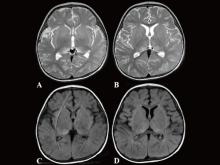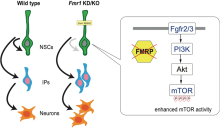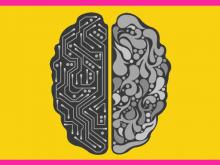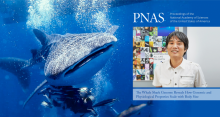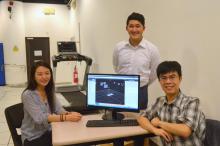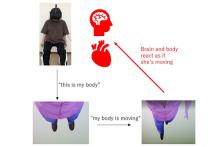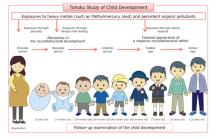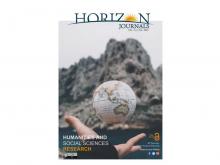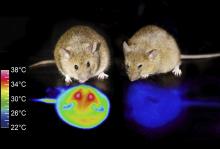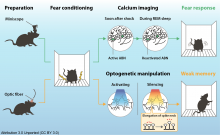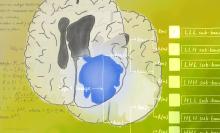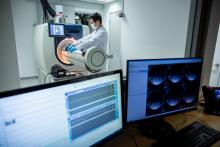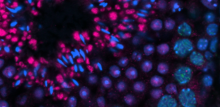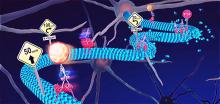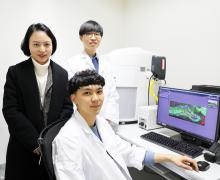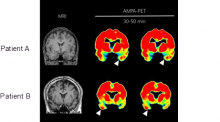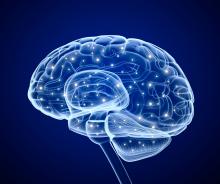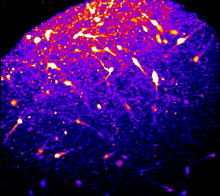Brain
News
16 Dec 2020
Daegu Gyeongbuk Institute of Science and Technology (DGIST) researchers gain deeper insight into a cell membrane channel, with potential implications for drug development.
16 Dec 2020
A research team used next-generation sequencing to illustrate the possible molecular mechanisms that cause the Fragile X syndrome in fetal brains.
15 Dec 2020
An AI might soon help stroke survivors get the right treatment by detecting a patient’s post-stroke depression type, a frequently seen neuropsychiatric manifestation after a stroke that could impair functional recovery.
20 Nov 2020
A research team, affiliated with South Korea's Ulsan National Institute of Science and Technology (UNIST) has presented the whole-genome sequence and analyses of the endangered whale shark (Rhincodon typus), the largest extant fish on Earth.
20 Nov 2020
A new mechanism of action by which misfolded proteins cause indirect damage to neurons
02 Nov 2020
DGIST scientists are learning more about the molecular processes involved in the formation of well-communicating nerve fibres.
14 Sep 2020
Scientists at Daegu Gyeongbuk Institute of Science and Technology, Korea, show that it is possible to distinguish between left-handed and right-handed people by noninvasively monitoring just their brain activity during passive tactile stimulation. These results are key in haptic research (the study of sensory systems) and have various important implications for brain–computer interfaces, augmented reality, and even artificial intelligence.
09 Sep 2020
Running is a fundamental mode of human movement that most of us perform effortlessly without conscious thought. Some may run regularly for exercise, or even undergo serious, professional training for completing marathons. This apparent ease of running belies the enormous biomechanical complexity of running, the coordinated control of which is accomplished by an intricate neuronal network in the brain and spinal cord.
01 Sep 2020
Researchers at the Smart-Aging Research Center (IDAC) at Tohoku University have developed an innovative training protocol that, utilizing immersive virtual reality (IVR), leads to real physical and cognitive benefits.
11 Aug 2020
Scientists from the Daegu Gyeongbuk Institute of Science and Technology, Republic of Korea, discover a new way to diagnose Alzheimer’s disease by analyzing the levels of specific proteins in nasal discharge. This simple and inexpensive method could help in timely diagnosis of Alzheimer’s disease, in order to start treatment as soon as possible, thus delaying disease progression.
30 Jul 2020
A study conducted over the past 18 years has found differences between lead exposure effects in young Japanese boys versus girls.
29 Jul 2020
Music training does not have a positive impact on children’s cognitive skills, such as memory, and academic achievement, such as maths, reading or writing, according to a study published in Memory & Cognition.
27 Jul 2020
Hokkaido University researchers have found a soft and wet material that can memorize, retrieve, and forget information, much like the human brain. They report their findings in the journal Proceedings of the National Academy of Sciences (PNAS).
07 Jul 2020
The JUL 2020 regular issue of the Journal of Humanities & Social Sciences Research (JHSSR), Volume 2 (1) JUL. 2020 has been published ahead of time on 30 Jun 2020 and is now live at the Journal’s webpage.
12 Jun 2020
Researchers at the University of Tsukuba and RIKEN in Japan spark a hibernation-like state in mice—a species that does not naturally hibernate
04 Jun 2020
Researchers from University of Tsukuba and the University of Tokyo identify neurons responsible for memory consolidation during REM sleep
03 Jun 2020
A highly accurate machine learning tool could help doctors tailor individualized treatments for people with glioma brain tumours.
19 May 2020
Scientists say some myelin-damaging disorders have a distinctive pathology that groups them into a unique disease entity.
13 May 2020
Diagnosis of Alzheimer's disease, the most common type of dementia, is not easy for its overlapping signs with normal ageing. A collaborative research by City University of Hong Kong (CityU) and Johns Hopkins University has developed a new non-invasive molecular imaging approach based on Magnetic Resonance Imaging (MRI) to dynamically measure glucose level changes in the brain lymphatic system. Their discovery may help in identifying Alzheimer's disease at early stages so that treatments can start as soon as possible.
21 Apr 2020
It is no secret that genetic factors play a role in determining whether children have neurodevelopmental disorders. Maternal exposure to drugs and viral or bacterial illnesses can be detrimental too.
27 Mar 2020
A new technique allows researchers to test how the deformation of tiny train track-like cell proteins affects their function. The findings could help clarify the roles of deformed “microtubules” in traumatic brain injuries and in neurological diseases like Parkinson’s.
03 Mar 2020
DGIST joint research team identified the roles of 'Somatostatin,' which mediates the functions of GABAergic synaptic protein
25 Feb 2020
Mayor Cheol-ho Song (Ulsan, South Korea) visited the startup facilities of Ulsan National Institute of Science and Technology (UNIST) on January 4, 2020.
18 Feb 2020
- Participants of 'International SYNAPSE Project', DGIST & POSTECH sign an MOU to build a joint cooperation system
14 Feb 2020
DGIST Professor Cheil Moon’s research team identified the molecular mechanism of innate olfactory behaviors. Clarified sensory defect accompanying neurodevelopmental disorder and cancer; will contribute to early diagnosis and improving anti-cancer drug side effects
23 Jan 2020
West Nile virus (WNV) inhibits autophagy — an essential system that digests or removes cellular constituents such as proteins — to induce the aggregation of proteins in infected cells, triggering cell death and brain inflammation (encephalitis), according to Hokkaido University researchers.
22 Jan 2020
A new compound could help doctors detect epileptic foci in the living human brain as well as further the understanding of psychiatric disease.
20 Jan 2020
A resource for journalists to find stories and sources. Focus On: Brain highlights research and experts exploring questions ranging from basic structure and function, to technology, diseases and treatments.
15 Jan 2020
First-of-its-kind study led by Duke-NUS Medical School and National Neuroscience Institute (NNI) applies experimental methodology using human neural cells and brain organoids to investigate mechanism underlying epileptic seizures in Angelman syndrome, an autism spectrum disorder.
Events
Sorry, no events coming up for this topic.
Researchers
Sorry, no researchers coming up for this topic.
Giants in history
David T. Wong (born 1936) is a Hong Kong-born American neuroscientist who is best known for discovering the antidepressant drug fluoxetine, better known as Prozac.


